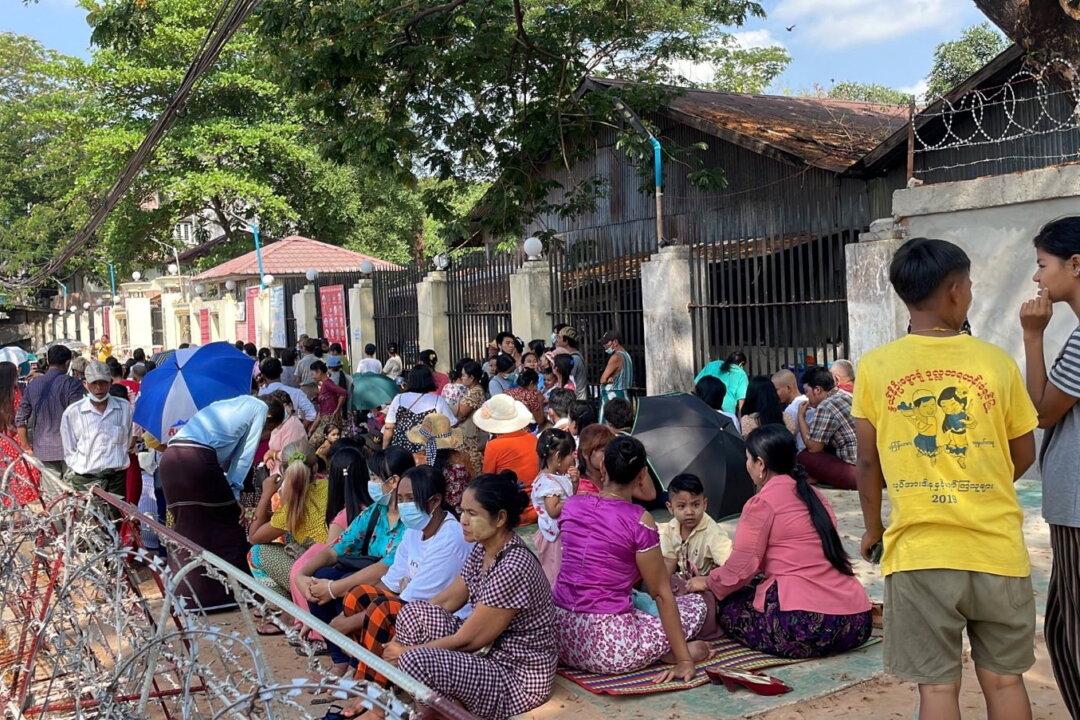The Burmese military junta released more than 1,600 prisoners on April 17 in an amnesty to “bring joy” to mark the country’s Buddhist new year, but political prisoners weren’t among those released, according to reports.
Lt. Gen. Aung Lin Dwe, a state secretary of the junta, said that a total of 1,619 prisoners, including 42 detained foreigners who will be deported, were pardoned to “bring joy to the people and address humanitarian concerns.”





